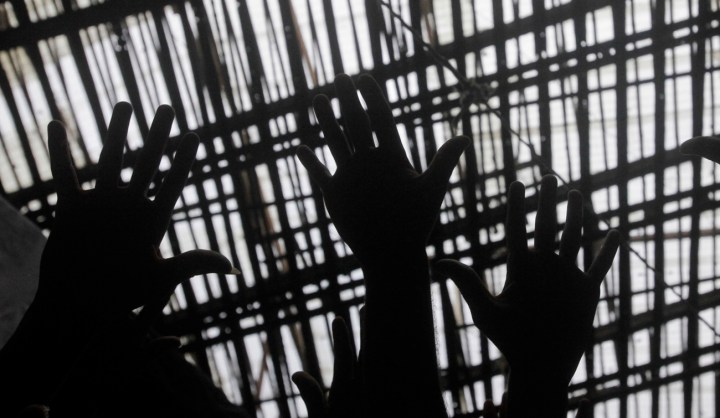Prison Oversight
Red flag raised over increase in inmate suicides

Overcrowding and lack of proper facilities for mentally ill patients — combined with a worrying rise in prison suicides — has rung alarm bells at the Judicial Inspectorate for Correctional Services.
In its 2017/2018 annual report, the Judicial Inspectorate for Correctional Services reported that because of a “recurring and persistent issue” of overcrowding within the criminal justice system, “suicides by mentally ill patients are on the increase”.
The Department of Correctional Services had previously reported that suicides made up 52 of the total unnatural deaths within their facilities in 2016/2017. That number rose to 82, in 2017/2018 with suicide as the highest cause of unnatural deaths in prison.
The inspectorate cited difficulties in getting the exact number of deaths because of a lack of mandatory reporting by the department.
However, a total of 1,200 inmates diagnosed with mental illness were kept with the general inmate population without adequately trained mental care staff. This impacted heavily on their mental well-being, the report said.
Another alarming revelation is that out of the 164,129 inmates in Correctional Service centres, a total of 44,158 are in remand — detained and still awaiting trial.
“Overcrowding is at the core of everything else that exists (within prisons),” said Judge Johann van der Westhuizen.
“The situation of mentally ill inmates has become urgent.”
In centres inspected in the Gauteng region, all were found to be on average 54% above capacity, with Sun City, designed to house 2,630 inmates but holding 4,107, at 65% overcrowded.
Kgosi Mampuru II Female Centre in Pretoria housed 96 more inmates than its designated 452 inmates.
The Eastern Cape was found to be the most overcrowded region at 57.86% above capacity.
Mdantsane Correctional Facility is meant to house 582 but was housing 1,456,150% above its intended capacity, with St Albans Maximum at 113% above capacity.
The Free State/Northern Cape region has the lowest average overcrowding rate at 11.4% across its 17 inspected facilities. Grootvlei Medium A Correctional Facility, meant to house 890 inmates, was found to have 1,503 — 69% overcrowded.
Although with the lowest overcrowding rate, this region faces other challenges. Only five facilities had educators to help inmates with rehabilitation
The report found that most facilities were in a “state of decay”.
The report also notes that the department has consistently “neglected to comply fully with the Correctional Services Act 111 of 1998 (CSA)”, which orders the department to inform JICS of any occurrences of “incidents of death, segregation, mechanical restraint and use of force”.
Because of financial constraints, the inspectorate was able to make only 81 prison inspections, although South Africa has a total 243 correctional service centres accommodating more than 160,000 inmates — including 16,000 who are serving life sentences.
“Our capacity financially and otherwise is limited for the task,” said inspection and investigation manager Leonard de Sousa. This means there is no information on the condition of the other 162 correctional facilities.
The inspectorate reports an allocated budget of R51-million, but expenditure is at R69-million.
“An apparent shortage of bed space in mental hospitals has resulted in numerous state patients being incarcerated in correctional centres, hardly equipped to treat them comprehensively,” said Van der Westhuizen.
State patients presently accommodated in correctional centres are all “pending transfer to an accredited institution” able to meet their needs.
Most correctional facilities in South Africa have little capacity to take care of mentally ill inmates.
The inspectorate lacks oversight powers over the department that funds and administers it.
Activist NGO Sonke Gender Justice approached the Cape High Court to fight for the independence of the inspectorate as an oversight body separate from the Department of Correctional Services, and also to question the constitutional validity of the Correctional Services Act 111 of 1998.
According to the NGO, the act does not afford the inspectorate the independence required by international law.
“The close relationship and location of (the inspectorate) within the Department of Correctional Services was found to be one of the most total reliance on the very department (the inspectorate) was to oversee,” said Vickash Misser, CEO of the Judicial Inspectorate for Correctional Services.
Because the inspectorate is funded, administered and housed in the Department of Correctional Services building, the result was “extremely slow progress” in effecting reforms, said Misser. DM

















 Become an Insider
Become an Insider